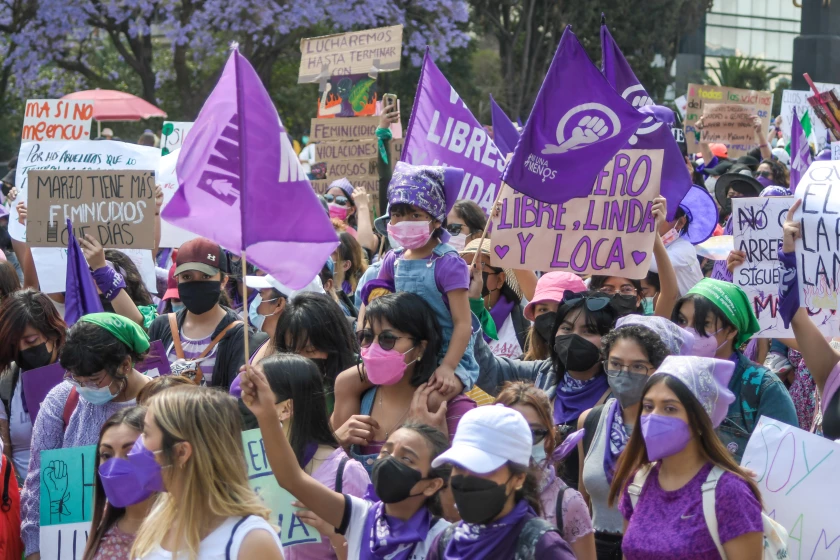Mexico is among one of the countries that are endeavoring to close the huge gender gap between men and women. According to UN Women, over the past few years, Mexico has made great strides towards gender equality, such as by reinforcing national gender equal laws and increasing public resources that are set aside for gender equality. Nevertheless, the problem is not completely resolved, and there is still much to be done.
This is why every year, Mexican women continue to protest and shed light on femicide, a term that refers to the killing of a female by a male because of her sex. This problem is becoming increasingly more serious worldwide, particularly in Mexico, in recent years. In fact, the Mexican government reported that there were a total of 1,006 cases of such homicides in 2021, which is a 978 increase from the previous year. Thus, the rally against femicide in Mexico has been successfully gaining more attention and support from people across Latin America.
This event is held on International Women’s Day (March 8th) annually with proud feminists marching down the streets of Paseo de la Reforma while chanting “Not one more assassination!” They also hold signs like “I march because I’m alive and I don’t know for how long.”
Similar protests are also taking place throughout Mexico and Latin America. They can also sometimes turn violent in order to attain more recognition from the media. The epitome of this is the massive protest that occurred in the spring of 2020 when women were continuously being murdered in Mexico. However, it did not just end with one protest because months later, many furious activists stormed the National Human Rights Commission to destroy paintings of historical revolutionary heroes, cover them with anti-police slogans, and hang up posters that commemorate the women that were killed or disappeared.
Unfortunately, this movement does not receive support from everyone as some people regard it to be a retaliation against the government rather than to promote gender equality. “That’s not defending women, that’s not even feminism,” the President of Mexico Andrés Manuel López Obrador asserted. “It’s a reactionary conservative position against us, against the politics of transformation.”
